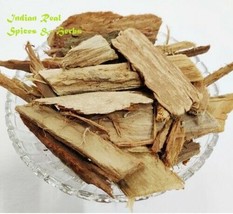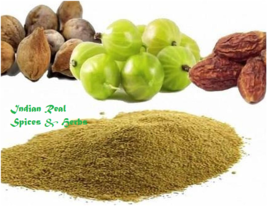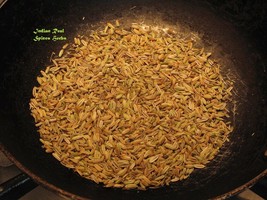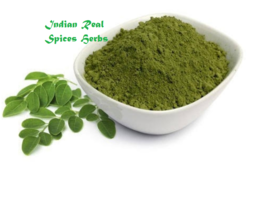Neem Bark Azadirachta Indica 100% Real and 50 similar items
Free Shipping
Neem Bark Azadirachta indica 100% REAL AYURVEDIC PURE NATURAL Pack of 250 gram
$24.74
View full item details »
Shipping options
FREE via Unspecified shipping type to United States
Ships from
India

Offer policy
OBO - Seller accepts offers on this item.
Details
Return policy
Purchase protection
Payment options
PayPal accepted
PayPal Credit accepted
Venmo accepted
PayPal, MasterCard, Visa, Discover, and American Express accepted
Maestro accepted
Amazon Pay accepted
Nuvei accepted
View full item details »
Shipping options
FREE via Unspecified shipping type to United States
Ships from
India

Offer policy
OBO - Seller accepts offers on this item.
Details
Return policy
Purchase protection
Payment options
PayPal accepted
PayPal Credit accepted
Venmo accepted
PayPal, MasterCard, Visa, Discover, and American Express accepted
Maestro accepted
Amazon Pay accepted
Nuvei accepted
Item traits
| Category: | |
|---|---|
| Quantity Available: |
3 in stock |
| Condition: |
New |
| Brand: |
Fresh |
| Product: |
Single Spice |
| Food Aisle: |
Pantry |
| Food Specifications: |
Listing details
| Seller policies: | |
|---|---|
| Shipping discount: |
No combined shipping offered |
| Posted for sale: |
More than a week ago |
| Item number: |
993591405 |
Item description
Neem Bark Azadirachta
indica 100% REAL AYURVEDIC PURE NATURAL Worldwide Free Shipping 100
Gm To 1 kg
ondly touted as the “Panacea For All Diseases”, the
health benefits of the bitter neem leaves in any form have been employed for
various purposes for centuries now. It would be quite uncommon to not see a
neem tree in the neighbourhood, in our country. Neem, is one such wondrous
plant that is widely used for treating a wide-range of health anomalies. Be it
gastro-intestinal disorders, liver problems, dental problems, infections, skin
conditions, hair issues or problems related to any sort of microbial
infestation, the holy neem is an absolute remedy for all.
What Is Neem?
Call it “Holy Tree”, “Divine Tree”, “Nature's Drugstore”,
“Life-Giving Tree”, or “Village Pharmacy”, the humble Neem has a strong
foothold in the world of medicine and wellness. Right from the leaves, roots,
stems, flowers, seeds, bark or fruits, each and every part of the neem plant
has potent pharmacological properties including anti-fungal, antiviral,
anti-bacterial, antihistamine as well as germ-killing qualities.
Neem which goes by the botanical name Azadirachta indica
is a member of the mahogany family, Meliaceae. The scientific latinized name
comes from the Persian words, where ‘Azad’ signifies ‘free’, ‘dirakht’ means
‘tree’, and ‘indica’ symbolizes ‘of Indian origin’. Hence, the scientific name
indicates a free tree native to India.
Neem is of evergreen origin growing to a height ranging
from about 50 to 120 feet. It has wide, spreading branches with a dense
roundish crown with a diameter of about 15 – 20 mt resembling much like the
chinaberry tree. It has a short, stout, straight trunk with a diameter of about
1-2 metres. The tree possesses toothed, elliptic leaves that are arranged
oppositely on the twigs. These leaves are generally purple when young and
become dark green when it matures. Flowers are auxiliary, arranged in drooping
panicles ranging from 5-6 mm long and 8-11 mm wide and are usually small,
white-tinted with a bitter aromatic fragrance. Neem bears fruits in the form of
drupes that are oval to roundish in shape with a smooth exterior. The drupes
are chiefly green when young, turning slowly into yellow on ripening, enclosing
pulp and seeds inside.
Being a natural air purifier, it can not only withstand
rising temperature but also improve soil fertility. Studies suggest, on a
sweltering summer day, the temperature under a neem tree can be atleast upto 10
degrees lower. Thus, sitting under a neem tree can often help in relaxing by
beating the heat.
Neem is quite compatible to grow in arid regions with
little rainfall and even has the incredible ability to withstand drought making
it ideal for the world we live in today. It is chiefly cultivated in the
tropical climate of most of the states of the Indian subcontinent and can also
be found growing widely in our neighbouring countries including Nepal,
Bangladesh, Srilanka and Pakistan.
Common Names Of Neem
This bitter tree is known by different names in different
parts of the world including Azadirachta indica, Neem Tree, Indian Lilac, and
Margosa Tree in English, Arishta, Pavakrita and Nimbaka in Sanskrit, Neem in
Hindi, Nim and Nimgacha in Bengali, Bevu in Kannada, Aryaveppu, Aaruveppu in
Malayalam, Veppai, Sengumaru in Tamil, Vepa in Telugu, Kandunimba in Marathi,
and Dhanujhada, Nimbda in Gujarati.
Other vernacular lesser common names of Neem include
Picumandah, Picumardah, Aristah, Prabhadrah, Nim, Nimgaachh, Leemado,
Turakbevu, Huchchabevu, Chikkabevu, Kadunimba, Nimb, Neemo, Vempu, Veppu, Vemu,
Vepa etc.
Ayurvedic Indications Of Neem
Centuries back, neem was probably the most recognized
therapeutic plant of the Indian subcontinent and hence it was mentioned time
and again in several Puranic texts just like the Atharava Veda, Upanishads,
Amarkosha and Ghrysutra scriptures portraying the excellent qualities of this
divine herb. The holistic science of Ayurveda acknowledges this rejuvenative
herb as Nimbaka and has been actively mentioned in several ayurvedic scriptures
and journals for various indications which include Kustha (treats skin
disorders), Deepana (enhances stomach fire), Keshya (treats hair problems),
Pachana (helps in digestion), Rochana (stimulates appetite), Anulomana
(improves breathing), Prameha (manages diabetes), Trutahara (relieves excessive
thirst), Shwasha (relieves breathing difficulties), Amahara (treats
indigestion), Vamana (prevents nausea and vomiting), Vayasthapana (prevents
ageing), Dahahara (relieves burning sensation), Mehahara (treats urinary
tract disorders), Arsha (treats piles or haemorrhoids), Krichra (treats painful
micturition) Rasayani (rejuvenates the whole body), Balya (improves
muscle strength), Hikkanigrahana (controls hiccups), Kantya (relieves sore
throat), Triptighno (relieves pseudo-satiation), and Vamanopaga (treats emesis)
Shonitasthapana (prevents bleeding), Jvara (useful in fever), Kasahara
(Relieves cough), Pandu (treats anaemia), Sangrahini (treats diarrhoea),
Kamala (prevents jaundice), Varnya (improves complexion), Krimihara (relieves
intestinal worms), Hridaya (treats heart problems), and Kanthya (improves
voice).
What Are The Chemical Constituents Of Neem?
Mother Nature has blessed the humble Neem tree with a wealth
of bioactive components that account for the wide-range of therapeutic
properties that ultimately helps in scourging the body of infections, microbes
and diseases. These biochemical components include azadirachtin, nimbolinin,
nimbin, nimbidin, nimbidol, nimbanene, nimbandiol, nimbolide, sodium nimbinate,
gedunin, salannin, quercetin, 6-desacetylnimbinene, ascorbic acid,
n-hexacosanol and amino acid, 7-desacetyl-7-benzoylazadiradione,
7-desacetyl-7-benzoylgedunin, 17-hydroxyazadiradione, ß-sitosterol, and
polyphenolic flavonoids.
Therapeutic Benefits Of Neem:
Aids In Digestion
Owing to the excellent digestive properties, neem plays a
quintessential role in promoting digestion. The anti-flatulent and astringent
properties of the oil or powder reduce the formation of gas in the alimentary
canal, thus reducing bloating, flatulence, and abdominal distension. The
abundance of fibre in the Neem powder offers a one-stop remedy for constipation and
other digestive issues. The antacid quality of the plant also prevents the
formation of excessive acids in the stomach thereby treating indigestion,
ulcer, gastritis, heart burn and helps in promoting better absorption of
nutrients in the body.
A tbsp of neem juice consumed early in the morning by
diluting with warm water helps to get rid of gastrointestinal problems.
Promotes Oral Health
This property of neem has been used for decades to uplift
oral hygiene. Bad Breath or Halitosis is not only a sign of poor oral
health but also a cause of public embarrassment. The abundance of germ-killing
properties, in the powder or oil helps in eliminating bad breath and bacteria
from the oral cavities and thus prevents swelling, bleeding and other oral
problems. This incredible germ-killing property of neem can be used in the form
of tooth paste, tooth powder or mouth wash. One can even simply use the twig of
neem to brush the teeth to reduce gum pain and bad breath.
Boosts Immunity
Thanks to the wealth of antioxidants and bioactive
components, Neem confers several folk remedies for improving the immune system,
fighting microbes and shielding the body against various infections. It also
portrays the presence of strong anti-bacterial, anti-viral, and antifungal
properties, which is extremely effective in preventing infections like fever,
common cold, sore throat, and other respiratory anomalies.
Treats Wounds And Ulcers
The anti-inflammatory and pain-relieving properties of
neem leaves play a crucial role in treating different types of ulcers like
ulcerative colitis, peptic ulcer, canker sores or mouth ulcers, etc. The
bioactive compounds in the neem leaf promote tissue regeneration, facilitates
wound healing whereas the juice extracted from the leaves is also used for
dressing wounds.
Purifies Blood
Thanks to the detoxifying properties of the humble neem,
the herbal extract is extremely beneficial in purifying the blood. By cleansing
the blood, it improves blood circulation and facilitates removal of toxins from
the bloodstream.
Remedies Pain And Inflammation
The array of anti-inflammatory and anti-arthritic
properties of the bioactive ingredients in Neem makes it the ultimate choice
for providing relief from pain and inflammation due to arthritis . It is
also extremely effective against Rheumatoid arthritis which is known as Amavata
in Ayurveda. This type of vata usually occurs due to vitiation of Vata doshas
and accumulation of Ama in the joints. It also provides instant relief from
burning sensations in various parts of the body.
Regulates Diabetes
This incredible leaf portrays strong anti-diabetic
properties which play a key role in pacifying the blood sugar levels in the
body. The ?-pancreatic cells, which helps in the production of insulin becomes
extremely active on the consumption of the leaf powder or juice. It also helps
to reduce the breakdown of starch into glucose which in turn leads to low blood
glucose levels in the body and maintains a balanced diabetic reading.
Ward Off Bugs
Insects, microbes and bugs form the root cause of several
health anomalies. Being carriers of different types of viruses, bacteria, or
other microbes, not only do they contaminate food and lead to food poisoning
but also cause problems ranging from rashes and itching to fever and
infections. Some insects can even lead to lethal infectious diseases like
dengue , malaria, chikungunya, yellow fever, etc. Imbued with potent
anti-microbial properties, the leaf oil or powder forms an absolute remedy for
all types of insects and microbes.
Enhances Skin Quality
The antioxidant, antimicrobial and anti-inflammatory
properties portrayed by neem extract offers blood purifying activity. Owing to
the Tikta (bitter) taste and Pitta balancing properties, it removes toxins from
the blood and hence helps to manage a host of skin diseases. It also plays a
quintessential role in managing inflammatory conditions like eczema, skin
eruptions, boils, psoriasis, and scabies. The leaf juice or oil when used as a
face pack also helps to prevent the various signs of ageing like wrinkles, fine
lines, blemishes and actively increases the radiance and bestows a rejuvenated
look.
elieves Hair Problems:
Neem has been a boon for promoting hair growth since
ancient times. Owing to the intrinsic anti-microbial and anti-inflammatory
properties, the plant treats various scalp and hair infections like
folliculitis, itching and dandruff. It also nourishes the hair follicles with
essential nutrients, improves blood circulation and strengthens the hair
strands from the roots to the tips. By normalizing the secretion of the stress
hormone, it also prevents hair fall and breakage due to stress and anxiety.
Make a paste of the neem leaf powder, methi powder and
water. Apply this hair pack all over the scalp and strands. Wait for 30 minutes
and wash off with cool water.
Culinary Uses
Although the leaves of neem, are extremely bitter, the
flowers with their off-white buds have unbelievable therapeutic properties and
are edible as well. Known as vepampoo in Tamil, these flowers are often used in
their fresh or dry forms and added to pachadi, rasam, flower rice, lentils,
curries and more. Apart from South Indian cuisines, Neem is also used to
prepare several North Indian dishes like chutneys, gravies etc that not
only enhances the taste of the food but also improves digestion.
Effect On Doshas:
The holy neem is sanctified with Tikta (i.e. bitter
taste) and Kashaya Rasa (I.e. astringent taste) and Laghu (i.e. light) and
Rukshna Guna (i.e. dry quality). It intrinsically portrays Shita Virya (i.e.
cold potency) and Katu Vipaka (i.e. pungent metabolic taste). Being light and
dry, it pacifies the Pitta (fire and air) doshas and Kapha (earth and water)
doshas whereas an excess of it can aggravate the Vata (air) doshas. Owing to
the intrinsic properties and doshas, Neem has a positive effect on the various
Dhatus (i.e. body tissues) of the body including Rasa (i.e. Plasma), Rakta
(i.e. Blood), Mamsa (i.e. Muscles), Asthi (i.e. Bones) and Shukra (i.e. Reproductive
Fluids).
The ayurvedic properties help in portraying the following
main prabhabs on the body which are, Vranahara (helps treat wounds),
Shramahara (relieves tiredness), Chardi (relieves vomiting and nausea),
Aruchihara (treats anorexia) and Krumihara (relieves worms).
Neem Side Effects:
Although it is considered safe when consumed in measured
quantities as per the instructions of an ayurvedic doctor or practitioner. The
formulations of Neem shouldn't be given to newborns, pregnant women or women
trying to conceive. It should also not be administered to people having any
kind of history of a stomach illness, or even irregularities. Even people
having kidney or liver issues should totally avoid using neem supplements since
an over usage of it can cause loose stools, vomiting, acidosis, liver damage,
decreased fertility, encephalopathy and even seizures in children.
Conclusion:
Neem, which is known for its bitter taste is blessed with
a myriad of health benefits. Thanks to the goodness of the essential bio-active
ingredients and the array of therapeutic properties, it is widely used for
improving digestion, regulating diabetes, treating ulcers and wounds,
preventing oral problems, enhancing skin qualities, diminishing hair woes and
many more.
|
Why are we showing these items?
Booth
Indian_Masala_Shop's booth |
|

-
Refine your browsing experience
We can show you more items that are exactly like the original item, or we can show you items that are similar in spirit. By default we show you a mix.
This item has been added to your cart
 Neem Bark Azadirachta indica 100% REAL AYURVEDIC PURE NATURAL Pack of 250 gram added to cart.
3 available in stock
Neem Bark Azadirachta indica 100% REAL AYURVEDIC PURE NATURAL Pack of 250 gram added to cart.
3 available in stock
View Cart or continue shopping.
 Please wait while we finish adding this item to your cart.
Please wait while we finish adding this item to your cart.
Get an item reminder
We'll email you a link to your item now and follow up with a single reminder (if you'd like one). That's it! No spam, no hassle.
Already have an account?
Log in and add this item to your wish list.























































